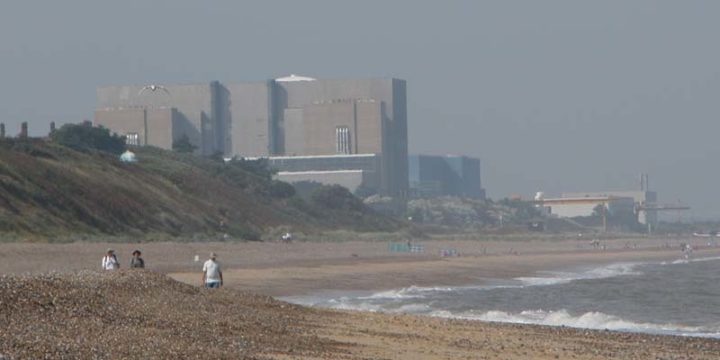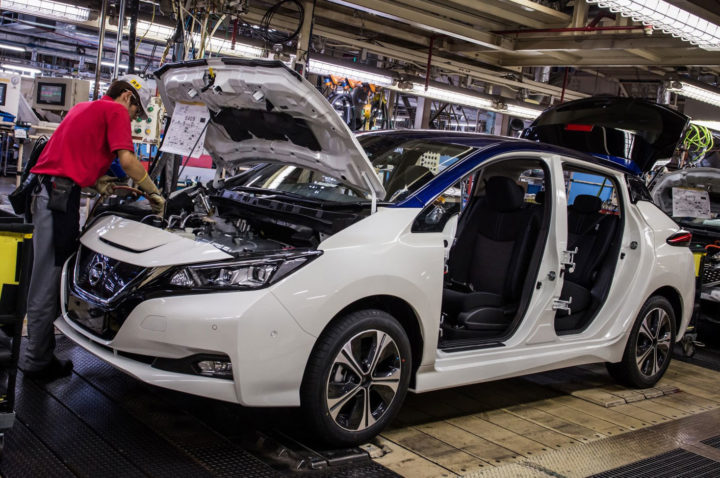Five big decisions for what's left of 2020
The final few months of 2020 bring with them a number of key climate decisions
By Jonny Marshall
Share
Last updated:
2020 will, of course, not be remembered as the ‘year of climate action’, as promised as the new decade kicked off. But while even the wildest prediction wouldn’t have foreseen what happened this year, there is still a chance for the Government to land some blows in its quest to get the UK back on track to net zero emissions.
In fact, a slew of policy papers, strategies, consultations and plans have all been pushed back to the final quarter of the year. This, somewhat surprisingly, gives the Government an opportunity to tick off some big decisions in UK energy policy – below are five of the biggest.
1. Nuclear power – Energy White Paper
Top of the list in the imminent Energy White Paper will be a decision on nuclear power in the UK, with tens of billions of pounds and the over-riding shape of the nation’s power (and likely total energy) supply on the line.
Facing strong pushback from Parliamentary colleagues on Chinese involvement in proposed plants at Sizewell and Bradwell, the Treasury appears to have cooled on nuclear power, with the Chancellor saying that ‘decisions haven’t been made on new plants’ in a recent radio interview. The proposed Regulated Asset Base (RAB) financing scheme and endless delays from plants currently under construction are also not going down well in Whitehall.

On top of this resistance comes August’s update of electricity generation costs, which sees renewable costs (LCOE) generally around 50% lower than when the same document was released in 2016. A continuing trend of increasing learning rates (costs falling as more is built) as well as the lowest hurdle rates (the minimum returns expected by investors – 5% in the case of solar PV) show how quickly the renewables world is moving. BEIS also sees carbon capture moving in this direction, not something easily said for nuclear.
These trends are only moving one way, therefore pushing back the decision further will only make it more difficult. Recent lobbying from Hitachi – an offer to resurrect plans for a new plant at Wylfa – are a clear sign of this, and highlight that now really is decision time on new nuclear.
2. Gas boilers – Heat and Buildings Decarbonisation Strategy
Pre-coronavirus, taking a much-needed call on domestic heating would have aligned well with Boris Johnson’s ‘getting it done’ mantra. Unreliable, unpopular and unclean, tackling the UK’s near-30 million domestic gas boilers is high on the list of priorities for getting back on track to net zero emissions.
At the very least, the Heat and Buildings Decarbonisation Strategy needs to take a call on the future of heating Britain’s homes, setting out a clear path to moving beyond fossil gas.
Expectations are that heat pumps will be favoured over the widespread use of low carbon gases, domestically at least, with heat networks also coming to the fore. This is not to say that the door will close on hydrogen, but that suggestions of a network-wide switch are seemingly wide of the mark.
But to make this work, the curtain needs to fall on our national addiction to gas boilers. The CBI recently called for sales to come to an end in 2025, which would see virtually every home in the UK hooked up to a clean heat source by 2040, based on current average boiler lifetimes.
Ever-plummeting renewable energy costs, acute urban air pollution and growing support for climate action mean now is a better time than ever to signal the end of a hugely outdated piece of kit.
3. Phase out date for fossil fuel cars and vans – Transport Decarbonisation Strategy

Earlier this year the Government moved on the proposed phase-out date for fossil fuelled cars and vans, bringing it forward by five years. The consultation the date closed at the end of July, and there remains uncertainty over how the decision will fall.
Current proposals for ending ICE sales in 2035 are not compatible with the UK’s climate targets, and will shine as a red mark if still in place when recommendations for the Sixth Carbon Budget (2033-37) are released later this year.
Another red mark will also be given if the phase-out lacks teeth on hybrid vehicles, especially those recently dubbed ‘mild hybrids’ by the automotive industry, which ultimately remain 100% fossil fuelled.
A strong decision here will give a vital signal to a global industry; if you want to sell your cars into the UK – historically a key market – then now is the time to throw some weight behind a range of emission-free vehicles.
4. Greenhouse gas capture – Energy White Paper, National Infrastructure Strategy
The consultation on Negative Emissions Technologies (NET), set to drop alongside the Energy White Paper, will provide a glimpse into the thought processes at the top of Government. Signs so far – cash for Direct Air Capture and endless ministerial visits to the BECCS trail at Drax – suggest that technofixes could be favoured over natural solutions.
But how we use land – from tree cover and peat restoration, to farming techniques – is expected to play a vital role in getting the UK to net zero. A well-though negative emissions target has the opportunity not only to futureproof dozens of UK industries (and take a punt on untried technology) but to do the things that clearly work but are less likely to grab the headlines.
Concrete action on natural solutions as well as techonolgies, seeing UK tree cover close in on 20% of total land area is – following the rapid decarbonisation of the power sector – one of the lowest hanging pieces of fruit left for the Government to grab.
5. Roads vs Broadband, National Infrastructure Strategy
Long delays, either due to threats of legal proceedings or by Covid-19, only increase the importance of the National Infrastructure Strategy. A Government seemingly willing to take a more hands-on approach is sat on the opportunity to deliver a Keynesian kickstart to the nation’s faltering economy.
Within this, the largest climate decision is what happens to the UK’s roadbuilding scheme. Largely chastised by green groups, yet seen as the Government as essential for growth, the £25bn+ earmarked for new asphalt is causing no shortage of squabbles.
Suggestions that it could be put to better use – boosting rural broadband to capitalise on increased levels of working from home, supporting public transport to reduce car dependency outside cities, or micromobility schemes such as electric bikes and scooters – are plentiful, suggesting that sticking to a roads-at-all-costs mind-set might not be out of date.
…And the rest
This is, of course, far from an exhaustive list for the coming months. Decisions on a third runway at Heathrow, Carbon taxes, new homes standards can all be expected before the Autumn budget. Successful delivery of the Green Homes Grants insulation scheme could make the case for more cash to cut energy waste from homes in 2021, by which time focus will have shifted to the Industrial Decarbonisation Strategy.
Overall, despite 2020 largely being a year to forget, the next few months could be crucial in the Government’s goal to reach net zero emissions.
Early days of the Johnson premiership showed a willingness to take the big calls, resurrecting this spirit in the latter part of 2020 is vital in ensuring that the UK’s decarbonisation continues apace into the decade ahead.
Share